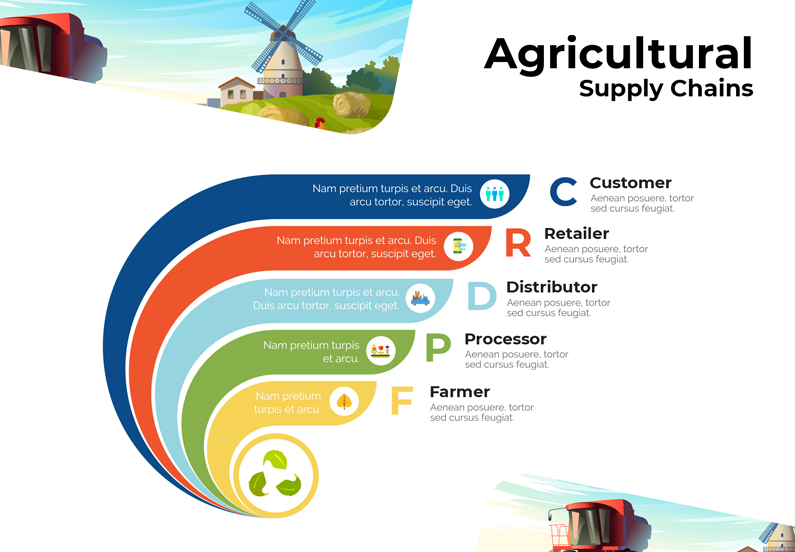Agricultural production creates rural employment opportunities in areas that may otherwise struggle to generate employment outside of agriculture-related industries or depend on one primary industry predominantly. Rural residents spend increasing amounts of their income in their local community because they work entirely within that finite geographic area and are limited to resources selected from it, too. The economic well-being of residents can be enhanced through the production of agricultural products. It is essential for you to understand how the agriculture supply chain can be beneficial for people, communities, businesses, and countries.
Benefits Of The Agricultural Supply Chain:
The agricultural supply chain can bring jobs and business opportunities to rural areas that are struggling economically.
Agricultural supply chains can offer real opportunities for enhanced social and cultural well-being because they create a sense of community within a region or country which can act as a driver for enhancing rural development.
The agriculture inventory management system has seen significant success in capitalizing on its ability to provide jobs and generate rural income, but it does so without requiring substantial capitalistic resources that may not always be present or affordable for smaller communities.
Agricultural production is sustainable, meaning that its impacts are limited to the environment around it rather than the people involved in it.
Agricultural production is sustainable because it is stable, predictable, and dependent on a cyclical ecosystem.
Natural capital can be maximized through the agriculture supply chain because it has increased the efficiency of its efforts in the production, distribution, and marketing of its goods.
The rural areas that are involved in agricultural supply chains tend to have better communications infrastructure and linkages to other areas.
The agricultural supply chain tends to be more closely knit within communities, so sharing information and good farming practices is commonplace for these types of systems.
Farmers who produce food products domestically tend to have a sense of purpose and pride in their work because they are providing products that people use every day.
Peer pressure is another tool that the agriculture inventory management system has used to improve its practices.
Conclusion
The agricultural supply chains tend to be more closely knit within communities, so sharing information and good farming practices is commonplace for these types of systems. Farmers who produce food products domestically tend to have a sense of purpose and pride in their work because they are providing products that people use every day. Peer pressure is another tool that the agriculture supply chain has used to improve its practices.
For more information visit Website!


